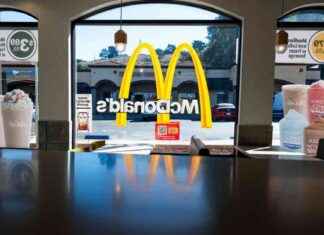With a ruling Tuesday, the U.S. Supreme Court revived a long-running whistleblower lawsuit that accused Wachovia’s investment bank of violating accounting rules and skirting internal controls to pursue short-term profits.
The Supreme Court vacated a judgment in August 2016 by the U.S. Appeals Court for the Second Circuit that had affirmed a lower court’s decision to dismiss the case filed by two whistleblowers, including one who had worked in Charlotte.
The high court ordered the appeals court to give the case further consideration in light of a June 2016 Supreme Court ruling that interpreted an aspect of the federal whistleblower law called the U.S. False Claims Act.
“It has obviously breathed new life into our case, which is very important for everyone involved,” said Joel Androphy, a Houston-based attorney representing the plaintiffs. “This has been a very long road.”
San Francisco-based Wells Fargo, which acquired Charlotte’s Wachovia in 2008, did not immediately respond to a request for comment. It has previously said the claims made in the case were without merit.
Under the U.S. False Claims Act, whistleblowers can file actions on behalf of the government and be eligible to receive up to 30 percent of any damages or penalties awarded under the action. A number of such cases have been included in larger multibillion-dollar settlements with banks over their mortgage-related operations.
Whistleblowers Robert Kraus and Paul Bishop first filed their lawsuit on behalf of the federal government in 2011 in U.S. District Court for the Eastern District of New York. They alleged the bank defrauded U.S. agencies that loaned money and provided other assistance to Wachovia in the financial crisis.
Kraus is a former Wachovia controller who lives in Union County, and Bishop is a former Golden West mortgage loan officer who lives in California’s Bay Area. Wachovia acquired Golden West in 2006.
The federal government declined to join the case alongside Kraus and Bishop, but the complaint continued to move forward until Wells Fargo was successful in winning the case’s dismissal in 2015. In that ruling, the U.S. District judge focused on whether the suit met the requirements of a False Claims Act case, rather than the specific allegations against Wachovia and Wells Fargo.
In its decision Tuesday, the Supreme Court referenced its ruling in a case known as Universal Health Services, Inc. v. United States ex rel. Escobar. In that case, the court held that it can be the basis for a False Claims case when a defendant “fails to disclose noncompliance with material statutory, regulatory, or contractual requirements.”
Androphy said he expects the Second Circuit Appeals Court will either reverse the District Court’s decision or send it back to the lower court for reconsideration in light of the Escobar case.
“Factually, we’ve known all along that we have a strong case,” he said.
While the Supreme Court is breathing new life into the case, the long duration of the legal battle is a reminder of the personal and financial difficulties that whistleblowers face, Androphy said. Kraus nearly lost his home in a foreclosure battle with Wells Fargo and is now working at a fast-food restaurant to make ends meet, he said.
“The whistleblower is basically sacrificing his family and his career for the taxpayers,” he said.
Rick Rothacker: 704-358-5170, @rickrothacker
Our editors found this article on this site using Google and regenerated it for our readers.







